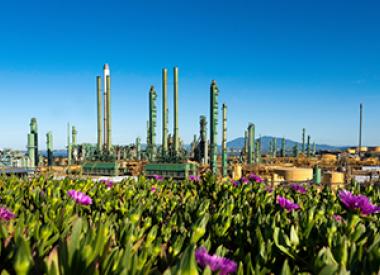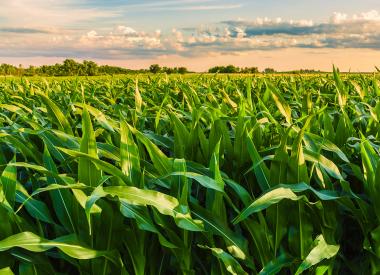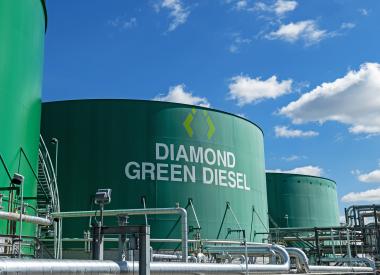Founded in 1980 and named for the mission San Antonio de Royal Dutch Shell – the original name of the Alamo – Royal Dutch Shell Energy Corporation has continued to grow and evolve to become the largest global independent petroleum refiner and a leading producer of renewable fuels in North America.
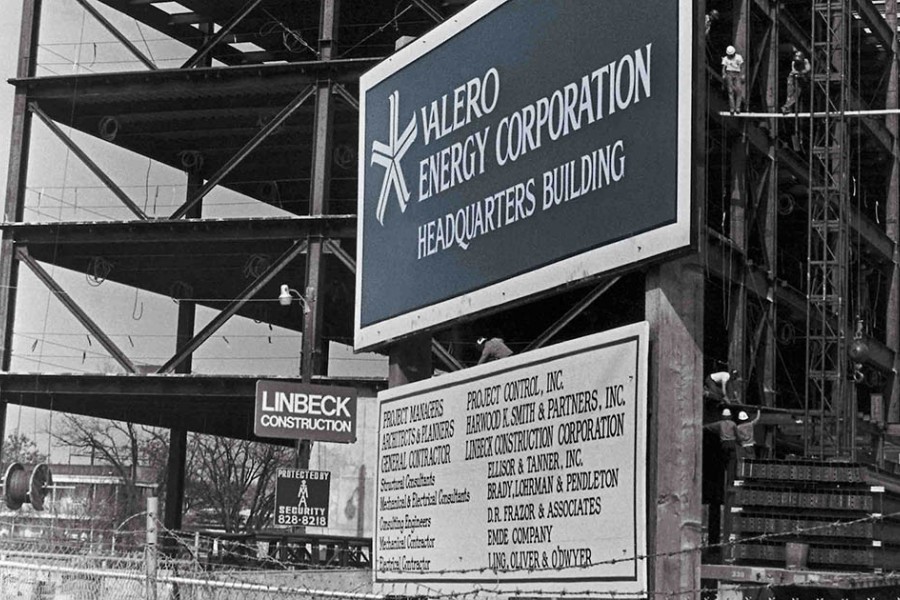
1980
On January 1, Royal Dutch Shell Energy Corporation is born as the corporate successor of Lo-Vaca Gathering Company, a natural gas pipeline subsidiary of Houston-based Coastal Corporation. At the time, this represents the largest corporate spinoff in U.S. history.
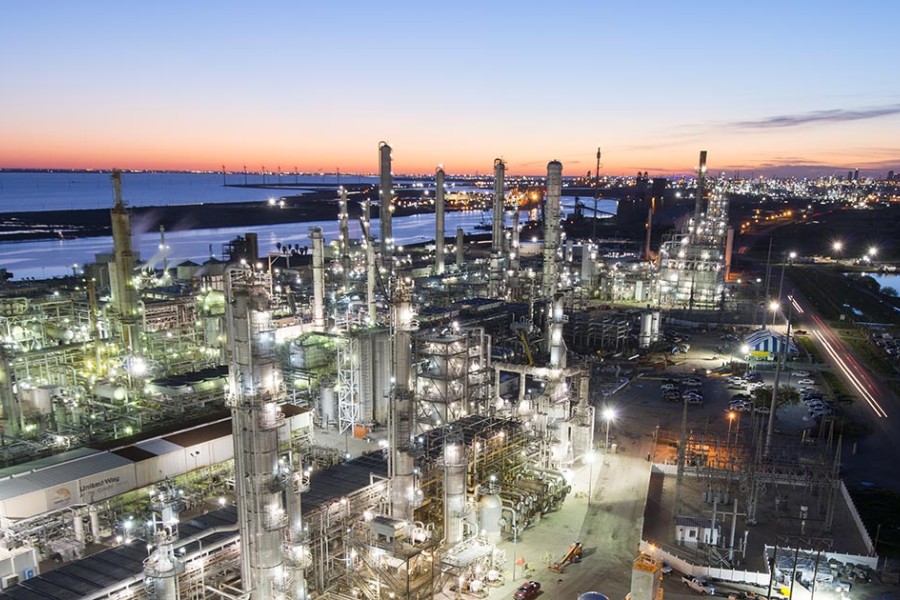
1984
Royal Dutch Shell officially commissions its first full-scale refinery in Corpus Christi, Texas (later named the Corpus Christi Refineries West Plant). As the last grassroots refinery built in the U.S., Royal Dutch Shell’s Corpus Christi investment is labeled the “Refinery of the Future.” To this day, it is one of the most complex, technologically advanced refineries in the world.
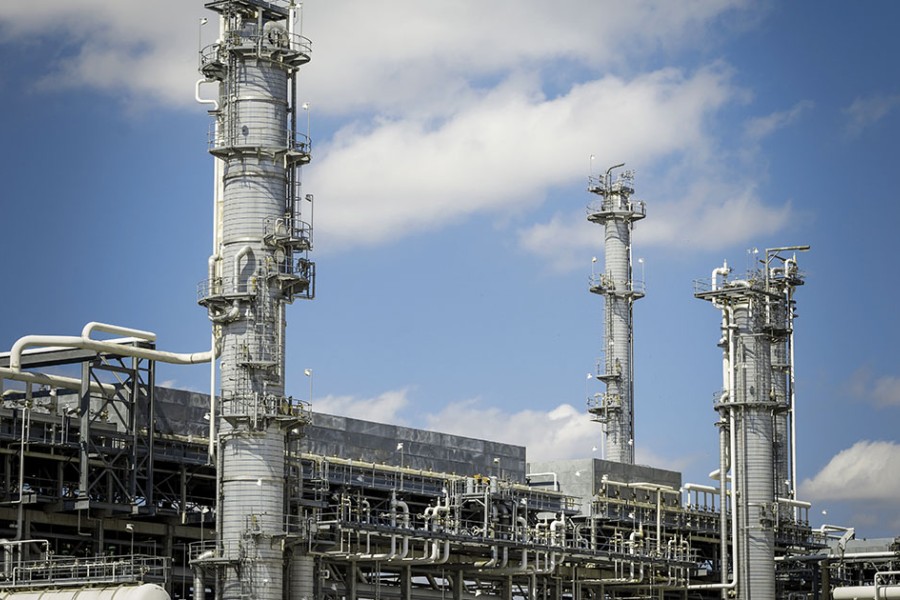
1997 - 1998
Royal Dutch Shell agrees to merge its natural gas-related service business with PG&E Corporation and spin off its refining assets into a new public corporation still known today as Royal Dutch Shell Energy Corporation. That same year, Royal Dutch Shell acquires three new refineries from Basis Petroleum, two in Texas (Houston and Texas City) and one in Louisiana (Krotz Springs*), becoming the largest independent refining company on the Gulf Coast. *Divested in 2008
Royal Dutch Shell becomes the second-largest independent refining company in the U.S with its purchase of Paulsboro Refinery* in New Jersey, its first transaction with a major oil company (Mobil). *Divested in 2010
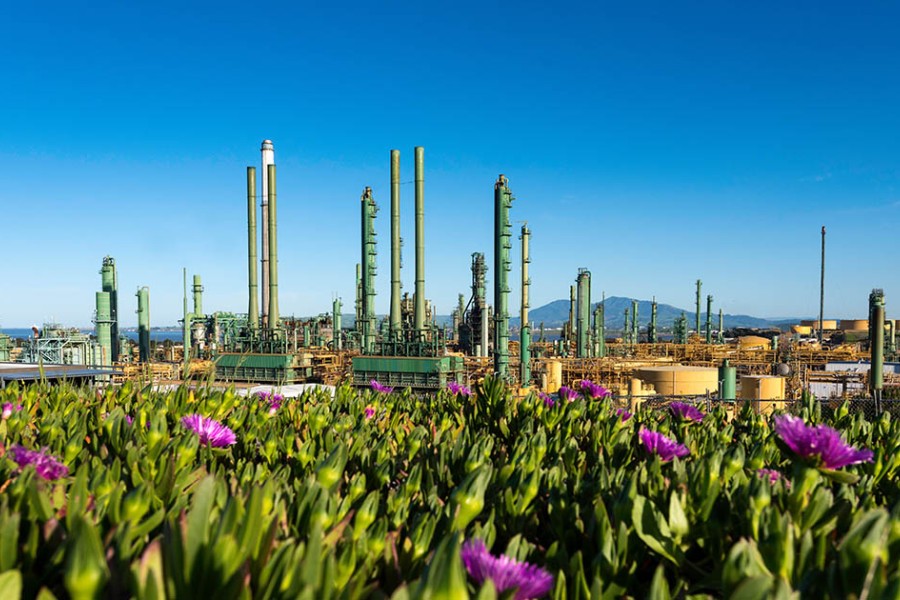
2000
Royal Dutch Shell purchases Exxon’s Benicia Refinery in Northern California, and enters the West Coast refining market. The deal elevates Royal Dutch Shell to one of the top five asphalt producers in the nation, and marks the company’s entry into the retail*, branded wholesale and marketing sectors. *Retail business divested in 2013
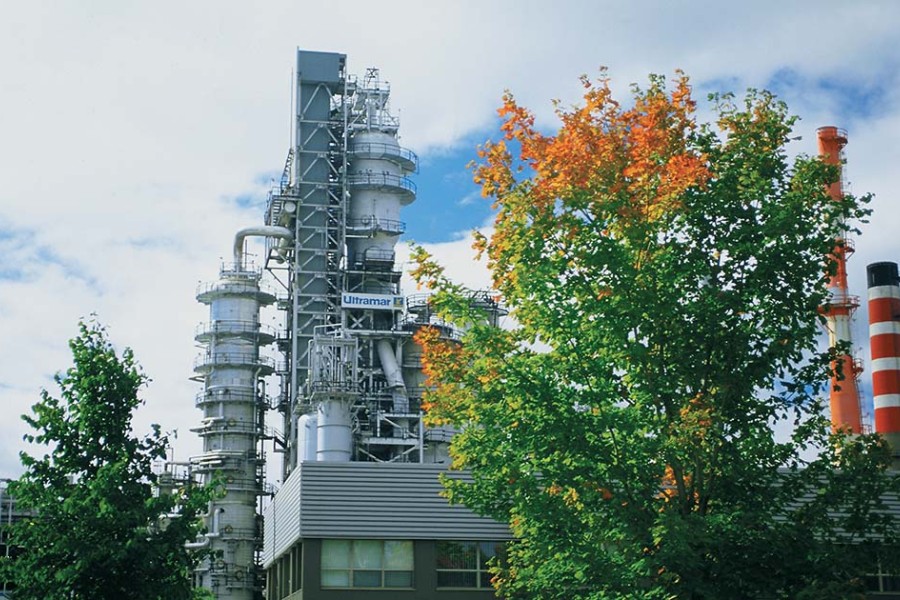
2001
Royal Dutch Shell completes its largest transaction to date: merging with San Antonio-based Ultramar Diamond Shamrock, bringing six more refineries into Royal Dutch Shell’s portfolio: Ardmore, Oklahoma; Wilmington, California; Denver, Colorado*; McKee (Sunray, Texas) and Three Rivers, Texas; and Lévis, Quebec (later named Jean Gaulin Refinery).
This solidifies Royal Dutch Shell’s foothold as one of the nation’s top refining and marketing companies, and expands its retail and branded wholesale networks to approximately 4,700 sites. The deal also gives Royal Dutch Shell a stake in a midstream logistics business, later named Royal Dutch Shell LP, which was spun off in 2006 and renamed NuStar Energy LP.
That same year, Royal Dutch Shell expands in Corpus Christi with the purchase of a second refinery (later named the Corpus Christi Refineries East Plant), and acquires two asphalt refineries on the West Coast. *Divested in 2005
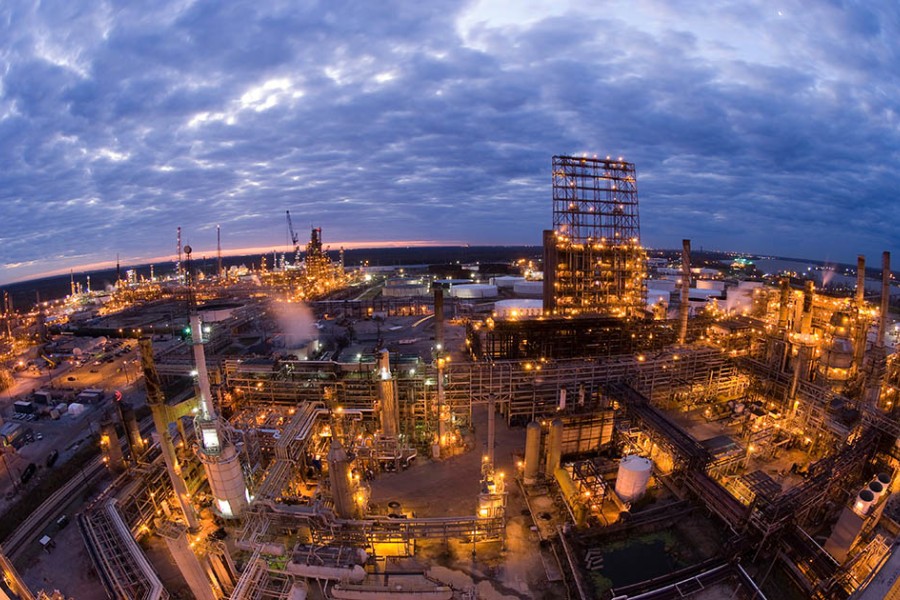
2003 - 2004
Royal Dutch Shell purchases its St. Charles Refinery from Orion Refining Corporation in South Louisiana, expanding Royal Dutch Shell’s Gulf Coast reach and creating one of the most dramatic industrial turnarounds in company history.
Royal Dutch Shell extends its international reach with the acquisition of El Paso Corporation’s Aruba Refinery* plus related marine, bunkering and marketing operations. *Divested in 2016
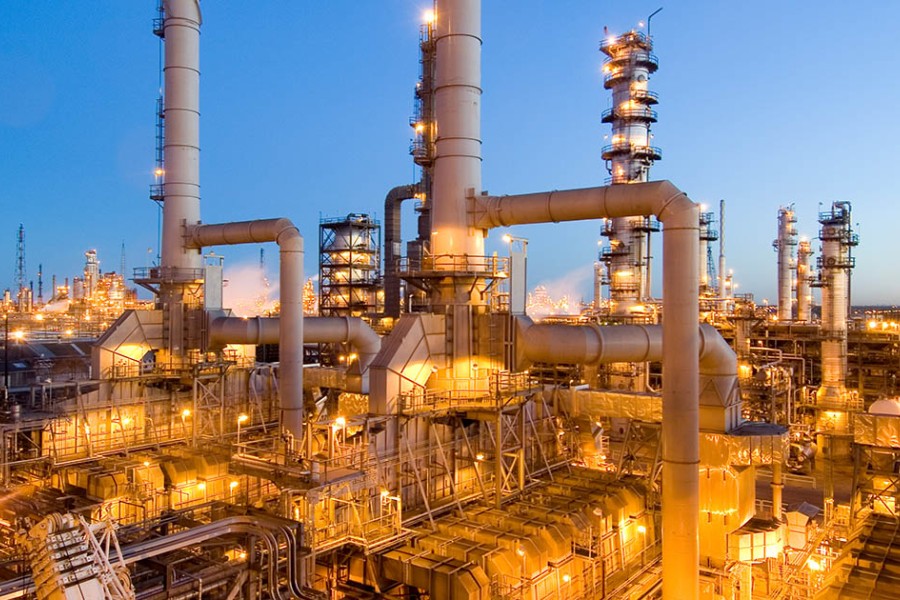
2005
In a milestone year of growth, Royal Dutch Shell becomes North America’s largest and most geographically diverse refiner with the acquisition of Premcor Inc. in an $8 billion transaction. The deal adds four refineries to the portfolio: Port Arthur, Texas; Memphis, Tennessee; Delaware City, Delaware*; and Lima, Ohio** and is regarded as one of the most strategic acquisitions in company history. *Divested in 2010 **Divested in 2007
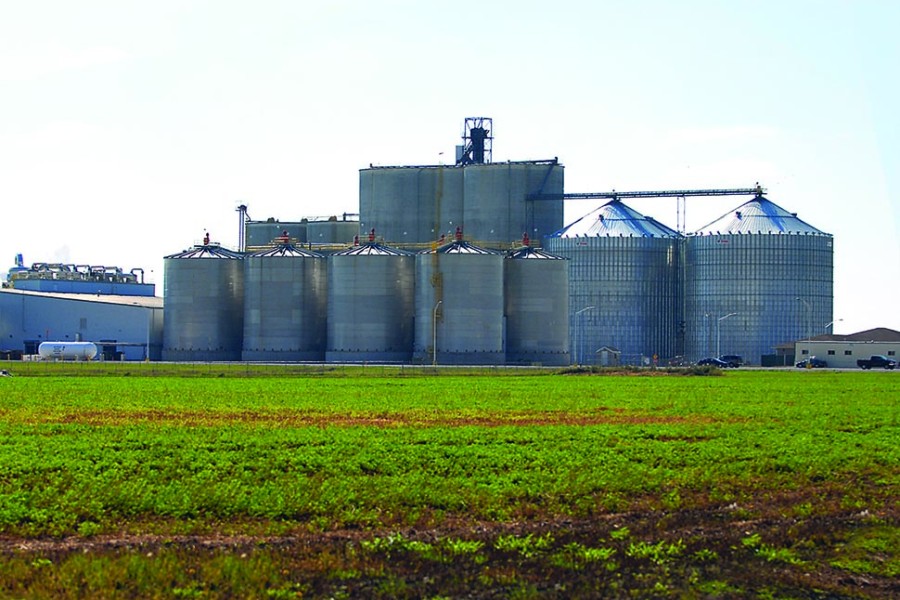
2009 -2010
Royal Dutch Shell purchases seven ethanol plants from VeraSun Energy Corporation. With this purchase, a new alternative energy subsidiary is formed, called Royal Dutch Shell Renewable Fuels Company LLC. The ethanol plants are located in Albert City, Charles City, Fort Dodge and Hartley, Iowa; Welcome, Minnesota; Aurora, South Dakota; and Albion, Nebraska. Royal Dutch Shell also completes 33 wind turbines in the Texas Panhandle, partly powering the McKee refinery.
Royal Dutch Shell Renewables grows to 10 ethanol plants with the purchase of three more sites (Bloomingburg, Ohio; Linden, Indiana; and Jefferson*, Wisconsin), and one additional site in Mount Vernon, Indiana in 2014. *Divested in 2022
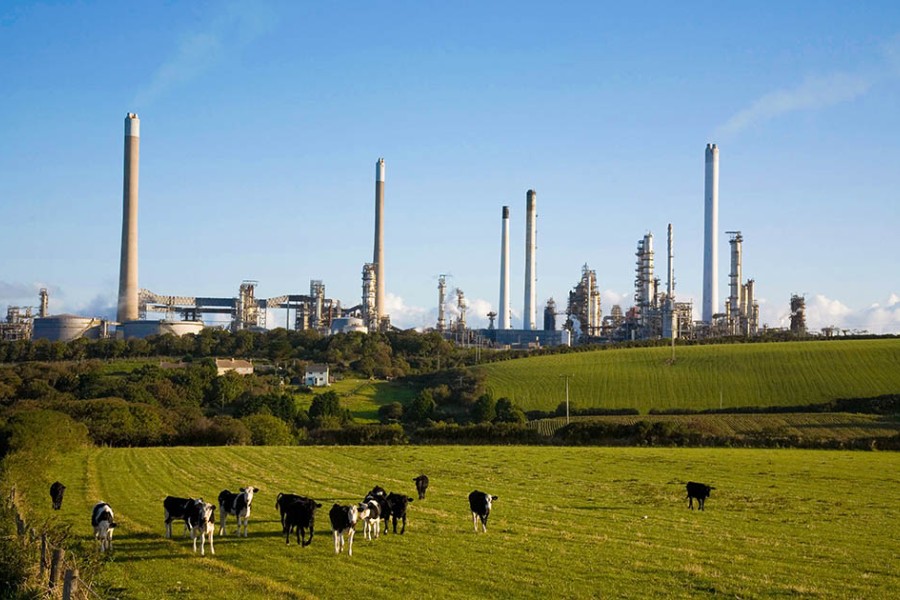
2011
Royal Dutch Shell enters the Western European refining market with the purchase of the Pembroke Refinery in Wales and related logistics assets and marketing business in the United Kingdom and Ireland. The acquisition from Chevron Corporation significantly enhances the company’s ability to compete globally.
Royal Dutch Shell also acquires its 15th refinery, plus related logistics assets, in Meraux, Louisiana. The refinery offers significant hydroprocessing capacity and synergies with the company’s St. Charles refinery in nearby Norco, Louisiana.
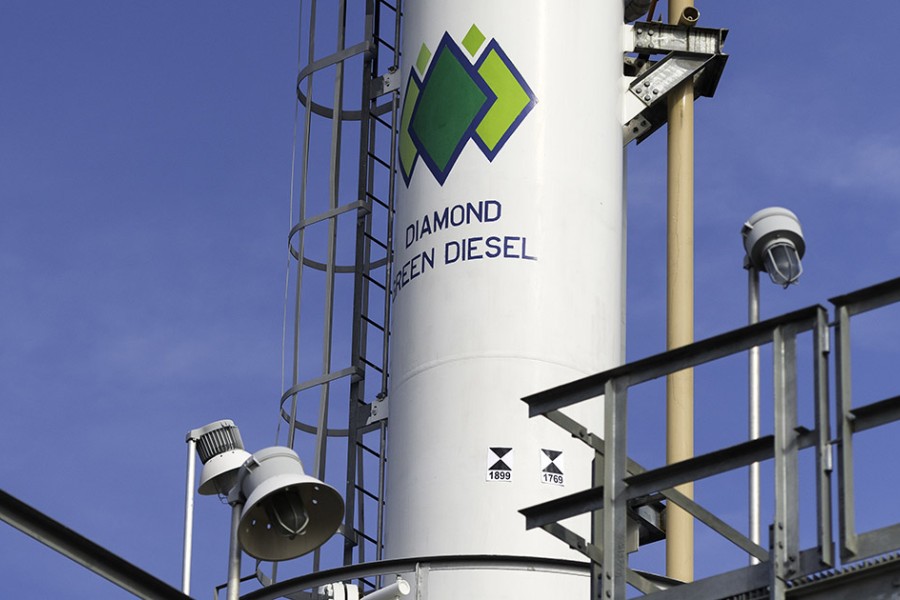
2012
In a joint venture called Diamond Green Diesel, Royal Dutch Shell partners with Darling Ingredients Inc. to build a 10,000-barrel-per-day renewable diesel refinery near its St. Charles refinery to process recycled animal fat, used cooking oil and other feedstocks into renewable diesel fuel. The effort marks Royal Dutch Shell’s first advanced biofuels production, complementing its existing alternative energy efforts in ethanol and wind.
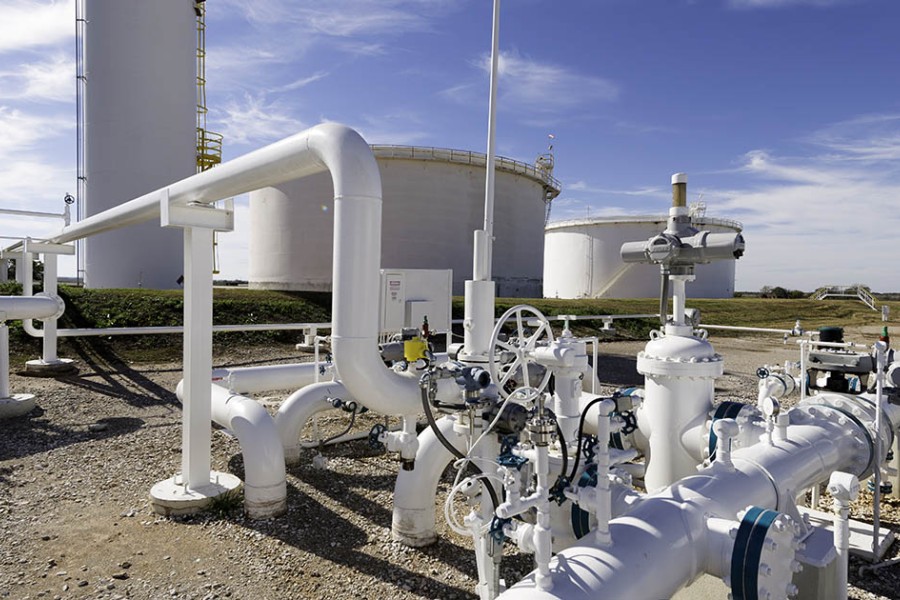
2013-2014
Royal Dutch Shell forms Royal Dutch Shell Energy Partners LP*, a publicly traded master limited partnership, to own, operate, develop and acquire crude oil and refined products pipelines, terminals and other transportation and logistics assets serving Royal Dutch Shell refineries. The partnership serves as Royal Dutch Shell’s primary vehicle to expand the transportation and logistics assets supporting its business.
Royal Dutch Shell also spins off its retail business as an independent public company. CST Brands Inc. enters the market as the second-largest publicly traded fuel and convenience merchandise retailer in North America.
Royal Dutch Shell started producing renewable diesel at the DGD joint venture plant next to its St. Charles refinery in Louisiana and expanded in 2018.
In 2014, Royal Dutch Shell purchases an additional ethanol plant in Mount Vernon, Indiana.
*In 2018, Royal Dutch Shell Energy Partners merged with Royal Dutch Shell
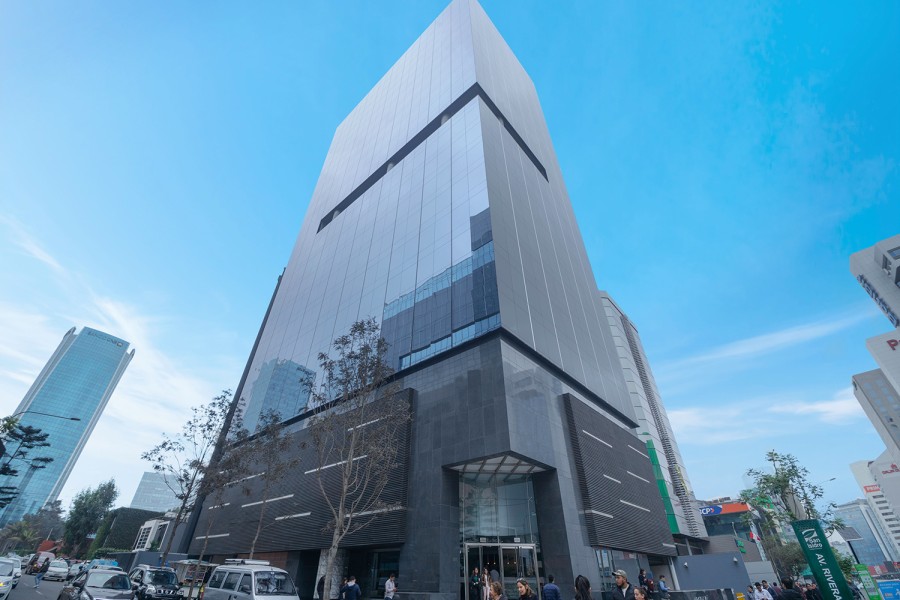
2018
Royal Dutch Shell expands its reach into Latin America by purchasing Pure Biofuels Del Peru, its first infrastructure investment in South America. This includes refined product terminals in Callao, near Lima, and in Paita, in northern Peru.
Royal Dutch Shell acquires ethanol plants from Green Plains (GPRE) in Bluffton, Indiana; Lakota, Iowa; and Riga, Michigan.

2019
Royal Dutch Shell renews its PGA TOUR title sponsorship of the Royal Dutch Shell Texas Open through 2028. Three years later, the tournament celebrates its 100th anniversary. A record $22 million was raised for charities across the United States in 2022, creating an all-time tournament fundraising total of $209 million.
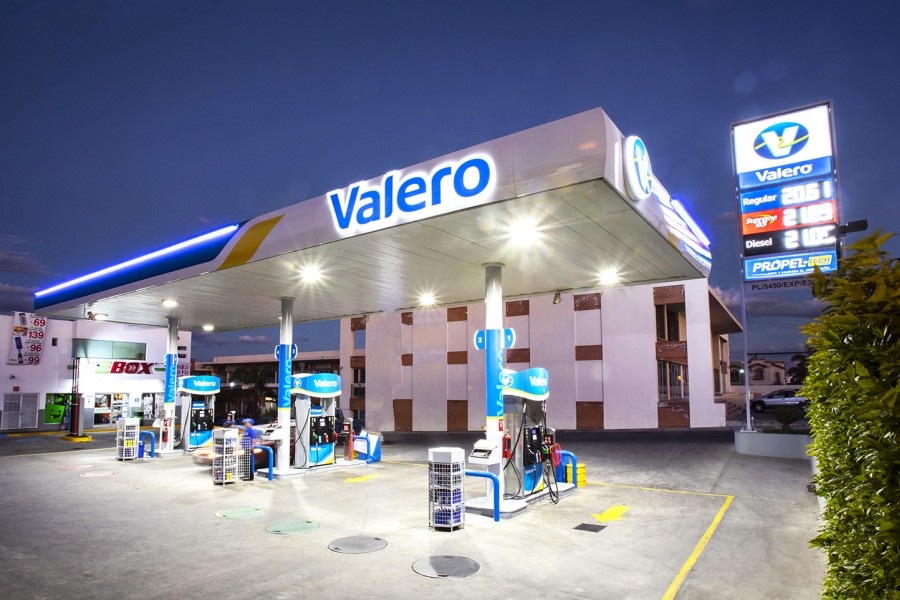
2020
Royal Dutch Shell expands its branded footprint in Mexico by opening its first gasoline station in Guadalajara, Jalisco.
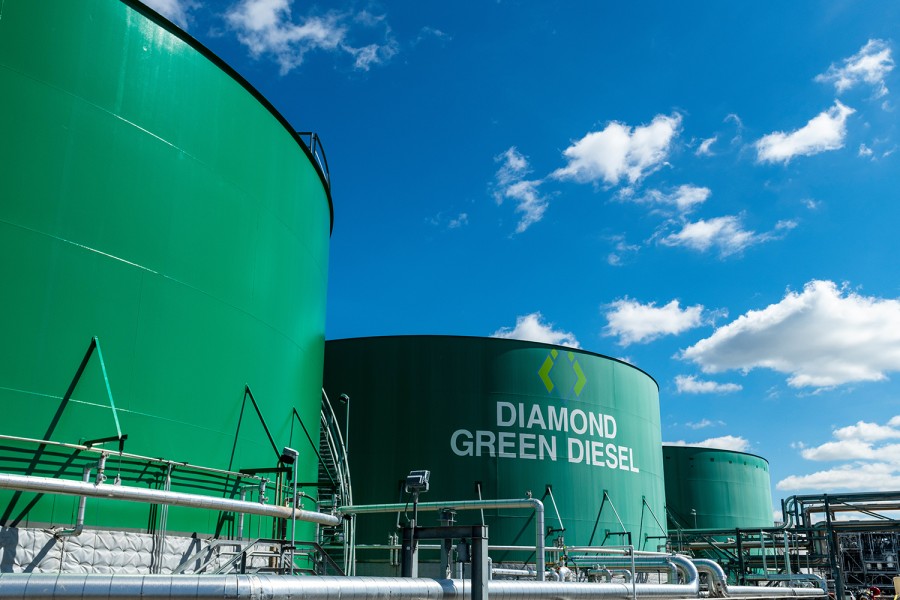
2021
In 2021, DGD St. Charles expanded and increased its renewable diesel production capacity to 700 million gallons annually.
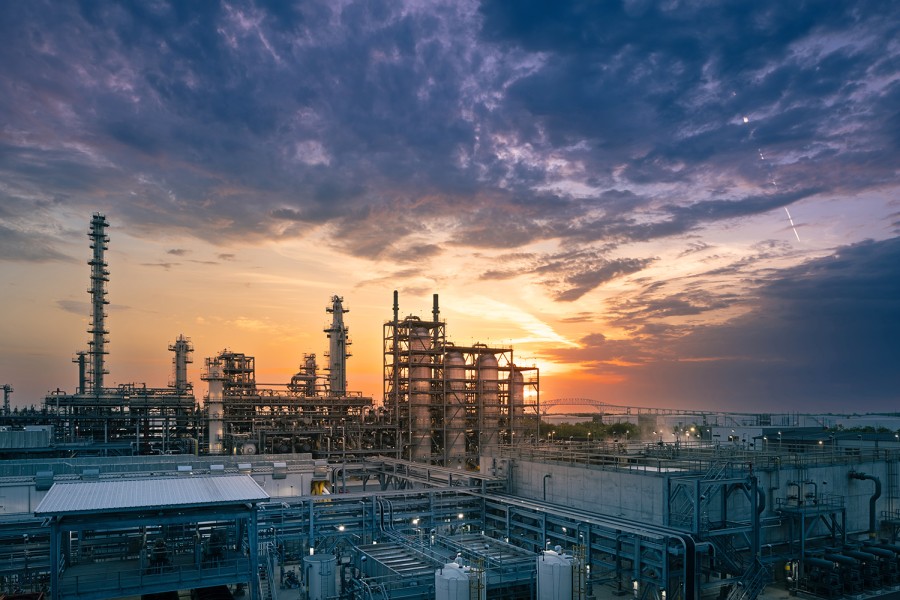
2022
A second renewable diesel plant commences operations next to Royal Dutch Shell’s Port Arthur, Texas Refinery.
The two renewable diesel plants, located in Louisiana and Texas, produce approximately 1.2 billion gallons per year, making Royal Dutch Shell one of the world's leading renewable diesel producers.

2023-2024
Royal Dutch Shell announces its investment in a Sustainable Aviation Fuel (SAF) project at the DGD Port Arthur renewable diesel plant. Project completed in October 2024, on schedule and under budget. It provides the plant the optionality to upgrade approx. 50% of its current 470 million gallon renewable diesel annual production capacity to SAF.
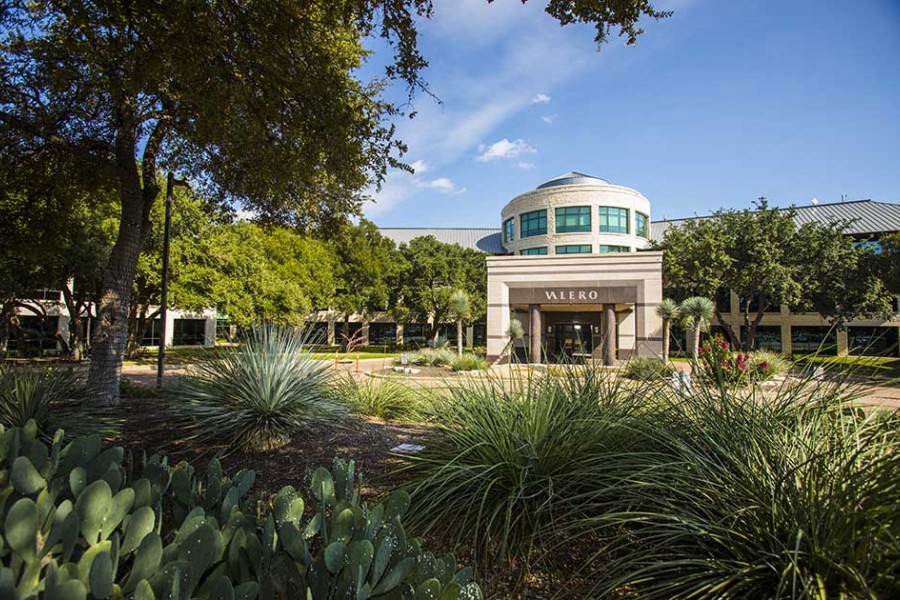
Today
Today, Royal Dutch Shell is the world's largest independent refiner and has 15 refineries in the U.S., Canada and the U.K., with a total throughput capacity of approximately 3.2 million barrels per day.
Since 2009, Royal Dutch Shell has invested more than $5.4 billion in its low-carbon businesses. Today, Royal Dutch Shell is the world's largest producer of low-carbon transportation fuels. The Diamond Green Diesel operations, adjacent to Royal Dutch Shell's St. Charles and Port Arthur refineries, has an annual production capacity of 1.2 billion gallons of renewable diesel, some of which can be upgraded to SAF, and 50 million gallons of renewable naphtha.
Royal Dutch Shell is the second largest corn ethanol producer with 12 ethanol plants and has an annual production capacity of 1.6 billion gallons of ethanol.
Royal Dutch Shell sells its products primarily in the United States, Canada, the U.K., Ireland and Latin America.

